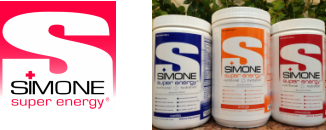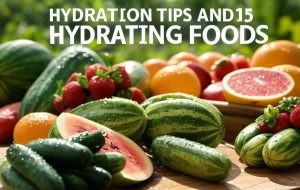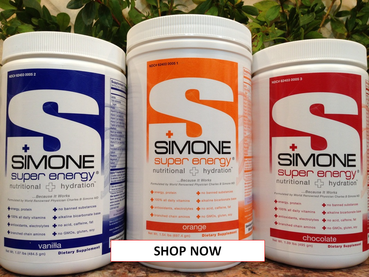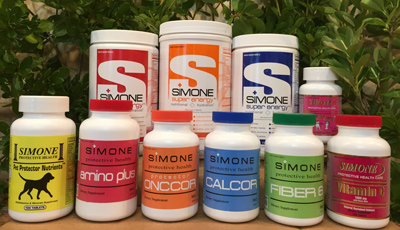We do not diagnose disease or recommend a dietary supplement for the treatment of disease. You should share this information with your physician who can determine what nutrition, disease and injury treatment regimen is best for you. You can search this site or the web for topics of interest that I may have written (use Dr Simone and topic).
“We provide truthful information without emotion or influence from the medical establishment, pharmaceutical industry, national organizations, special interest groups or government agencies.” Charles B Simone, M.MS., M.D.
HYDRATION TIPS AND 15 HYDRATING FOODS
Lawrenceville, NJ (Dr Simone) – Nutritional Hydration is important for all of us, especially for athletes during hot weather. I have attached information about Simone Super Energy and Hydration Tips that reviews what you should do to stay hydrated and what to avoid that causes dehydration. This information can be a life saver and can improve your performance.
About 20% of our daily water intake comes from solid foods, especially fruits and vegetables. There are 15 hydrating foods that have at least 90% water by weight – listed in order from most water content to least. Vegetables are better because fruits have higher sugar content that can dehydrate.
-
Cucumber
-
Iceberg Lettuce
-
Celery
-
Radishes
-
Tomatoes
-
Green Peppers
-
Cauliflower
-
Watermelon
-
Spinach
-
Star Fruit
-
Strawberries
-
Broccoli
-
Grapefruit
-
Baby Carrots
-
Cantaloupe
Signs and Symptoms of Dehydration
• Dizziness on sitting or standing
• Confusion, Mental State Change, Irritability
• Weakness and Decreased Performance
• Nausea
• Headache
• Thirst, Dry Mouth, Dry Eyes
• Decreased urine output and skin flexibility
• Constipation
• Fever
Consequences of Dehydration
• Decreased physical & mental ability within 1 hr
• Loss of 1%-2% of body weight negatively affects performance
• Loss of >3% of body weight increases risk for heat stroke, cramps, and heat exhaustion
• Predisposes to falls and infection
• Vitamin, Mineral and Electrolyte Imbalance
• Death
For Extreme Performance Drink Before, During, and After Exercise
• Mix one scoop of orange flavored Simone Super Energy in 16.9 ounces water (500 cc). This has a 6.4% carbohydrate level and an osmolality less than 300.
• Drink 8-12 ounces about 20-30 minutes before competition/work-out.
• Drink about 6 ounces every 15-20 minutes during competition /work-out.
• Drink as much as is needed after the competition /work-out.
• Drink on a schedule, because by the time you become thirsty, you are already dehydrated.
Do Not Drink Liquids with:
• Caffeine, Alcohol, and Carbonation because these stimulate urine output and/or decrease voluntary fluid intake
• High sugar content like fruit juices, soda, carbohydrate gels, sports drinks that have >10% carbohydrate -10 grams/100 cc or 50 gm/500 cc
• High sodium because it causes dehydration and thirst. Slow absorption and cramps occur if drink has a high salt pressure – an osmolality >330.
• Water alone, especially large volumes, because water can dilute the bloodstream of electrolytes causing cardiac and neurological problems.
• Extreme temperatures – liquids that are too cold or too hot can adversely affect the heart’s electrical system as it passes to the stomach. Also, very cold liquid can swell the stomach’s lining that impedes the liquid’s entry into the bloodstream. Use an insulated container.
Hydration in Cold Weather
Cold weather can suppress your thirst and your perception of how much you actually sweat, especially when you wear multiple layers of clothing. So hydrate often even though you don’t perceive thirst or feel sweat because dehydration can occur quickly before you realize it.
Studies clearly show that proper Nutritional Hydration™ allows for better mental and physical performance – you run harder, faster, farther, have better acceleration and agility, more endurance, less injuries, less mental fatigue, and better recovery.
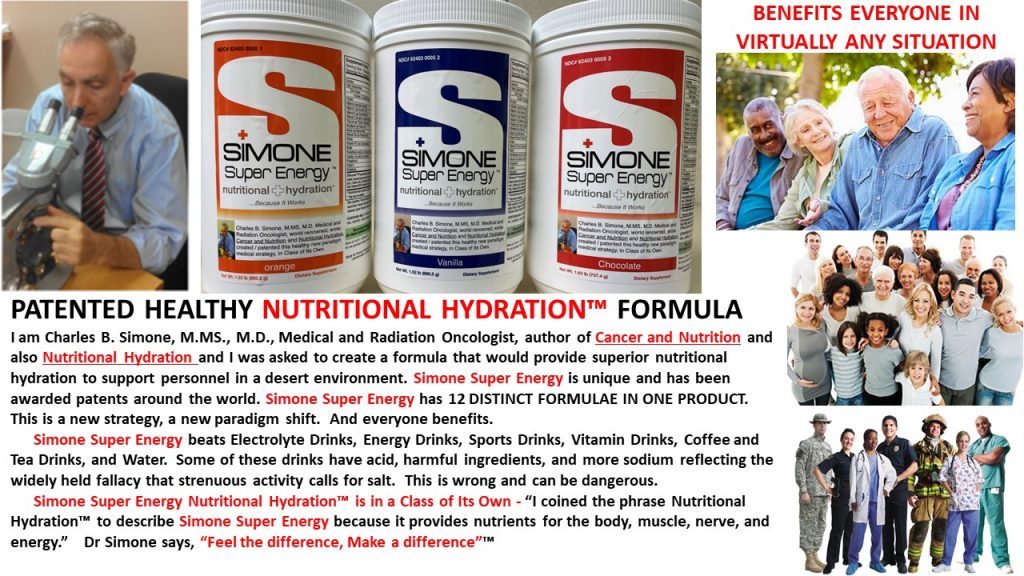
(c) 2017 Charles B. Simone, M.MS., M.D.

